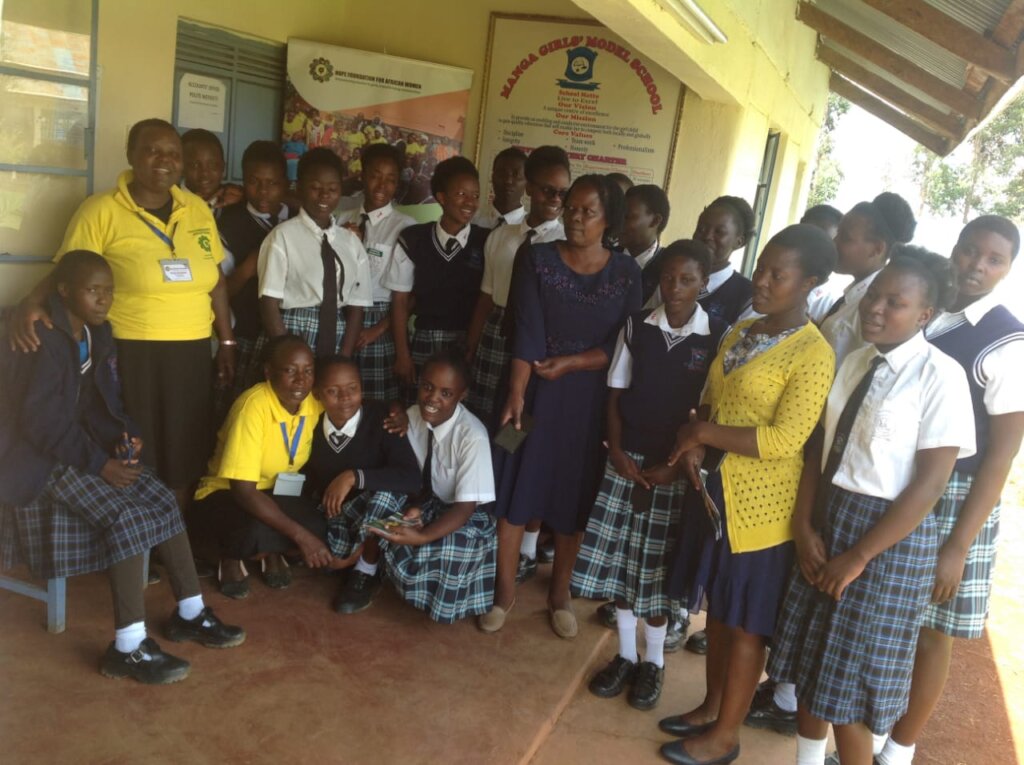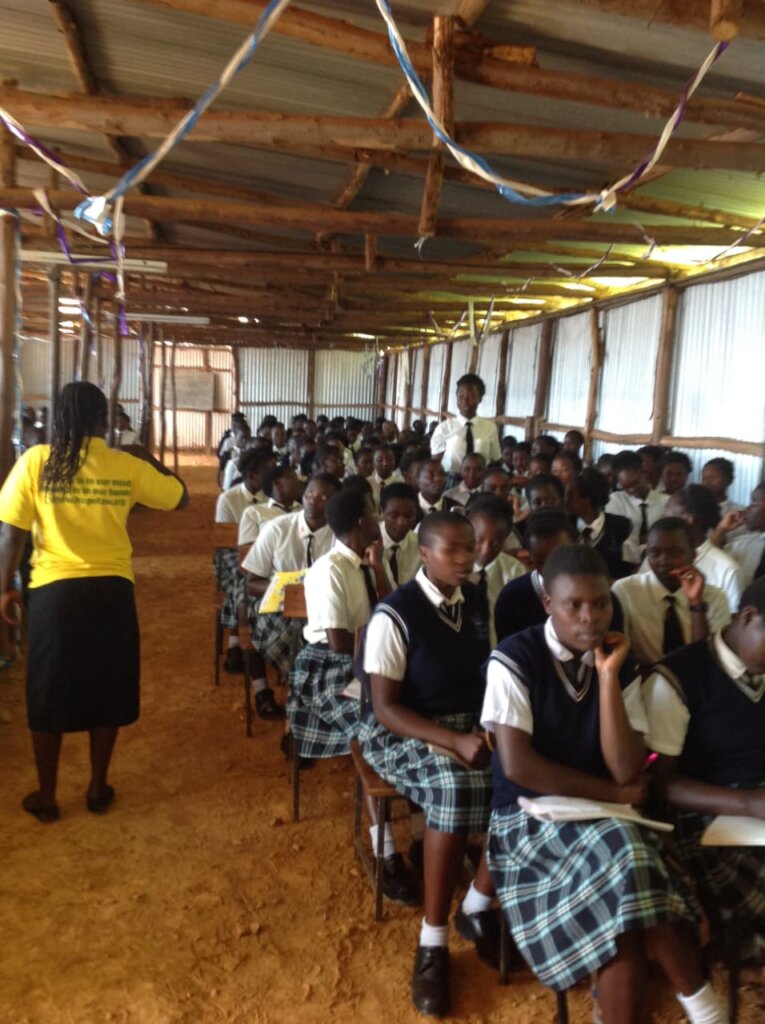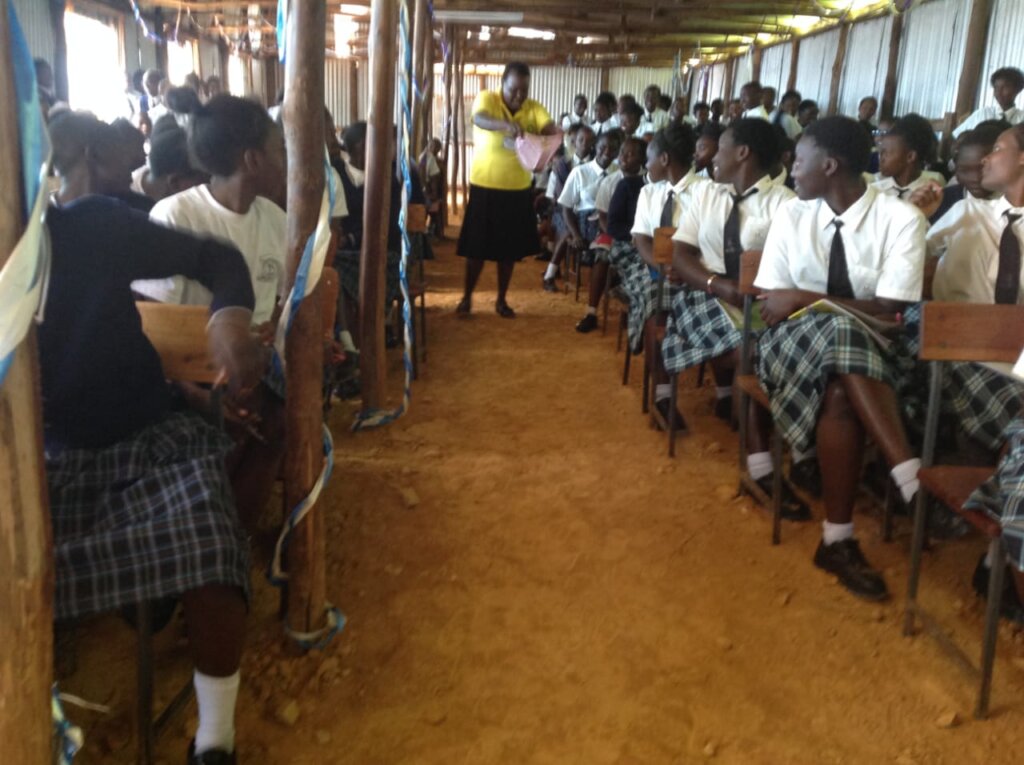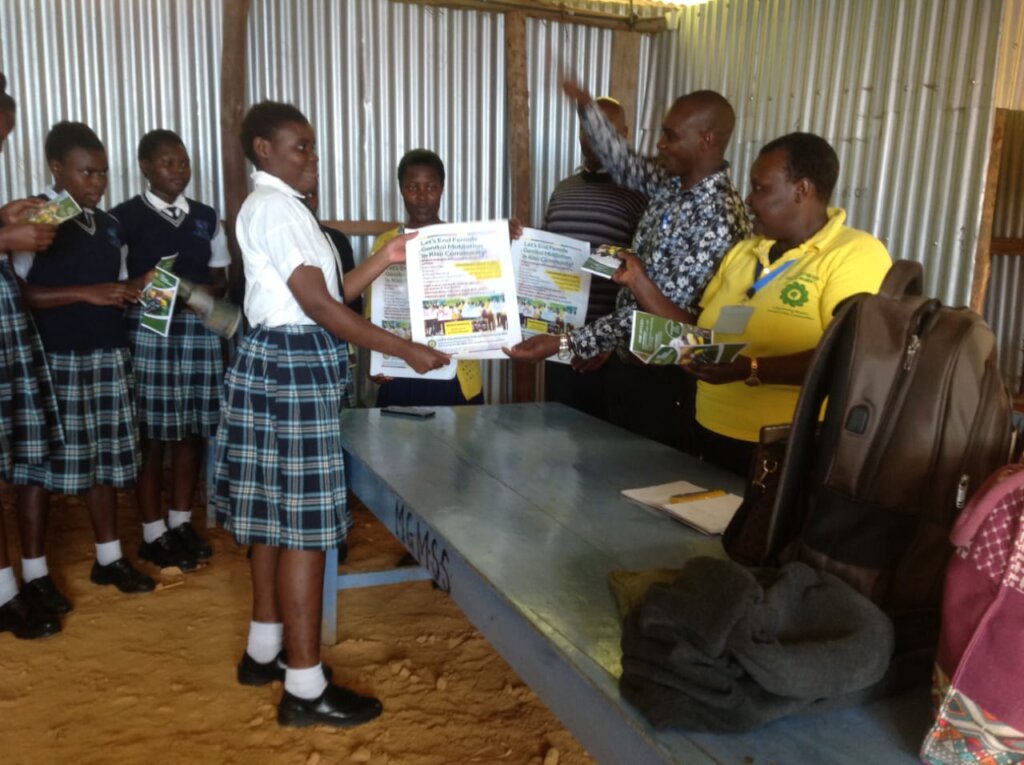By Doris Kananu | Program Director
Dear Esteemed Partners,
We are excited to share with you the ongoing efforts of HFAW in our mission to end Female Genital Mutilation (FGM), early teenage pregnancy, and Gender-Based Violence (GBV) in Nyamira County. Through engaging learners in social empowerment and capacity building, we are making significant strides towards achieving our objectives.
In January 2024, HFAW had the opportunity to interact with Manga Model Girls, a school community comprising 250 girls, 13 teachers, and 7 subordinate staff members, totaling 271 individuals. During our session, the girls were educated about FGM, its causes, effects, and issues on early teenage pregnancies. Some of the core areas of engagement were the health risks associated with FGM and menstrual hygiene. As the engagements continued, the girls demonstrated enthusiasm and curiosity, asking thought-provoking questions that reflected their eagerness to learn and understand.
Sharon, not her real name, raised concerns about the pain experienced during menstruation and its potential relationship to FGM. She asked, “Why do you experience pain during menstruation? Does it mean FGM is the cause?” Gladys, not her real name, on the other hand, questioned the conflicting advice regarding backache problems and sexual activity. She asked, “When experiencing backache problems, you are told you should have sex, yet you are telling us to abstain, aren’t we going to suffer more?”
Cynthia and Juliet, not their real names, sought clarification on common myths surrounding menstrual hygiene. Cynthia, not her real name, asked, “we are told when you have cramps, you should not share items with friends or seat on the same chair and if you want to be well, you look for someone to step on your back, is it true?” while Juliet, not her real name, asked, “Why is it that at times you menstruate clotted blood?”
Through open dialogue and education, HFAW staff debunked these misconceptions, empowering the girls with accurate information. For Sharon's concern about menstrual pain and its relation to FGM, the staff explained that FGM causes effects and in some women, it can cause painful menstruation due to damages done on the genitalia, and free flow of menstruation is hindered. Regarding Gladys' query on conflicting advice about backache and sexual activity, the staff emphasized the importance of abstaining from early sexual activity to avoid potential health risks, including exacerbating backache problems. For Cynthia and Juliet's inquiries about menstrual hygiene myths, the staff provided clarity by explaining that sharing items and certain rituals like stepping on the back have no scientific basis and may even be harmful. They also addressed Juliet's question about clotted blood during menstruation, clarifying that it's a normal occurrence due to the shedding of the uterine lining. Through these explanations, the staff empowered the girls to dispel misconceptions and promote health awareness. All these questions asked by the learners was an indication that they were enthusiastic and actively participated in the discussions and requested the team to go back for more sensitization sessions.
Additionally, we encountered a challenge involving a disabled student in need of walking aids. While this issue awaits further action from higher authorities, we remain committed to addressing the diverse needs of all learners. Despite these challenges, the learners exhibited a profound understanding of the detrimental effects of FGM and early teenage pregnancy on their education and well-being. They pledged to reject behaviors that jeopardize their lives, signaling a promising shift in attitudes towards these harmful practices.
We extend our sincere gratitude to our partners for their unwavering support and dedication to our cause. Together, we are making strides towards creating a safer and more empowered community for our girls.
With warm regards,
Doris Kananu,
Program Director
By Doris Kananu | Program Director
By Doris Kananu | Program Director
Project reports on GlobalGiving are posted directly to globalgiving.org by Project Leaders as they are completed, generally every 3-4 months. To protect the integrity of these documents, GlobalGiving does not alter them; therefore you may find some language or formatting issues.
If you donate to this project or have donated to this project, you can recieve an email when this project posts a report. You can also subscribe for reports without donating.
Support this important cause by creating a personalized fundraising page.
Start a Fundraiser


